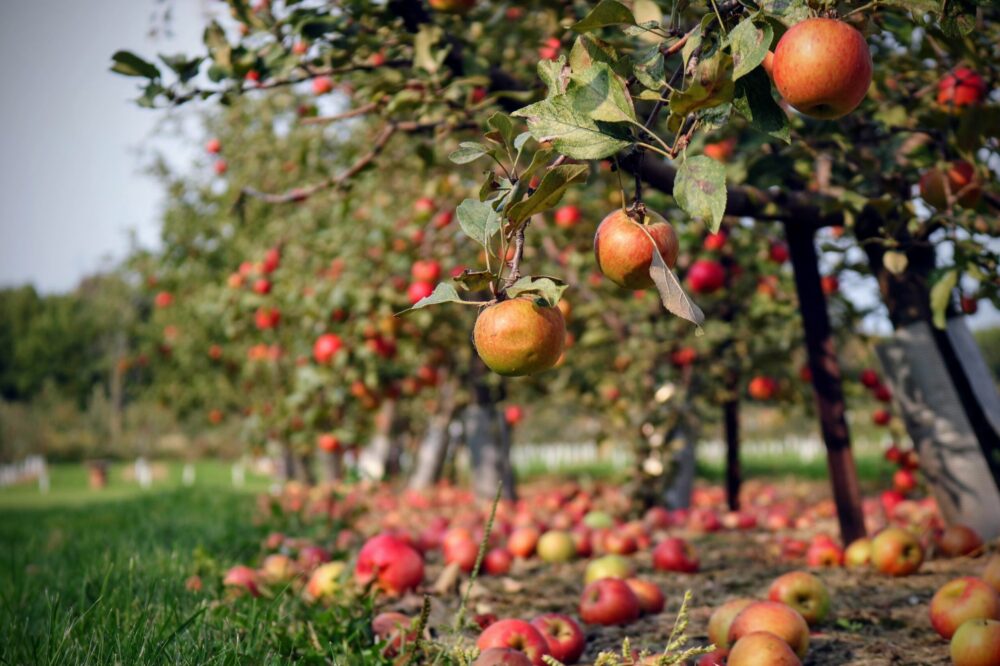A Brief History of Tu B’Shvat
The biblical origins of Tu B’Shvat are found in Leviticus 19:23-25, which sets the 15th of the month of Sh’vat as the new year for calculating when trees are tithed (subject to a one-tenth tax on produce). The holiday, popularized in the Middle Ages, established Tu B’Shvat as an opportunity for spiritual elevation and celebration through food–specifically a feast of fruits.
Jewish tradition designates a special status to fruit trees which help sustain life (Deut. 20:19-20). Therefore, our relationship with fruit-bearing trees was quite ‘calculated.’ Counting–and accounting for–this relationship helped and still helps us to stay in balance with the natural world.
Honoring the Earth Through Our Food Choices
Even in the Diaspora (outside the ancient land of Israel), we have an opportunity to honor trees through the foods that we eat. The more we incorporate foods that take less land and energy to grow–in general, grains, pulses, fruits, and vegetables–the more we protect trees and the benefits they afford all life.
Flipping the way we serve food–making plant-based meals the default and allowing people to add meat, dairy, and eggs to their meals as an alternative option–makes a big difference, even for one communal meal.
Environmental Benefits of a Plant-Based Nudge Strategy:
⅔ reduction in greenhouse gas emissions
⅔ reduction in water use
¾ reduction in food-related land use
Some Jewish communities may celebrate Tu B’Shvat with a seder or feast of fruits while others may plant trees or donate money to environmental causes. These earth-friendly activities are wonderful ways to commemorate the connection between Jewish traditions and our natural world but to truly preserve Jewish wisdom, practice, and peoplehood we need to do more.
If Jewish communities, organizations, and institutions focused on food waste and food sourcing year-round they could save hundreds or thousands of tons of carbon emissions, annually. Changing the meals we serve to community members, enacting sustainable food policies, and implementing plant-based nudge strategies can lower our environmental impact while fortifying Jewish traditions.
Without a healthy planet, there will be no trees and no Jewish community.




